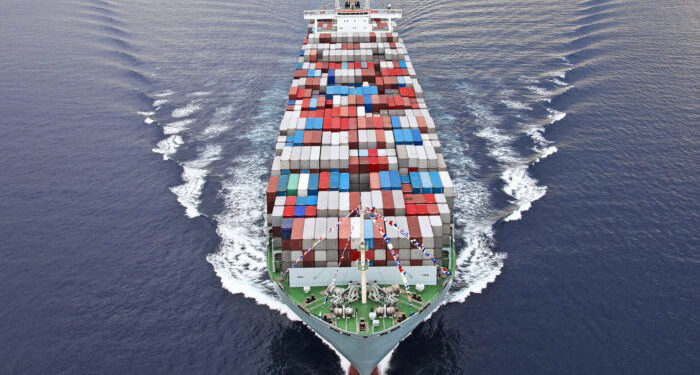The IMO met in London this week, in order to discuss how the shipping industry can continue with its decarbonization plan. IMO agreed that a goal-setting approach is the best way to reduce carbon emissions in the short-term, while full details of the approach will be resolved next year.
Specifically, states and NGO’s discussed the details and potential issues of the different submitted proposals, as well as how they would cut emissions and impact states. After lengthy discussions, they agreed that there was no appetite for prescriptive speed reduction regulation.
[smlsubform prepend=”GET THE SAFETY4SEA IN YOUR INBOX!” showname=false emailtxt=”” emailholder=”Enter your email address” showsubmit=true submittxt=”Submit” jsthanks=false thankyou=”Thank you for subscribing to our mailing list”]
In addition, IMO concluded that a mandatory goal-based approach will provide the necessary flexibility and incentive for continued innovation across the industry, being the best way to cut emissions.
Under this aspect, two methods, in line with the industry’s proposal, were recognised:
- A technical;
- an operational approach.
The two approaches will be further refined, and their implementation and enforcement will be developed at the next meeting in London during 2020. The meeting will take place 23-27 March in London, and will include discussions on some of the difficult questions on how to measure a ship’s efficiency accurately, establish a representative 2008 baseline and reflect the strategy’s targets to individual ships.
Commenting on the agreement, UK Chamber of Shipping’s Policy Director, Anna Ziou, commented on the agreement, saying that:
The progress made sets the right direction of travel and is a good foundation for the IMO’s work to put the strategy into action. However, there is still a lot to be done and we encourage all parties to show at the next meeting the same level of cooperation and come forward with constructive ideas to make sure that we deliver the ambitions of the IMO Green House Gas strategy
Regarding the setback in relation to a prescriptive speed reduction regulation, the UK Chamber of Shipping has in the past stated that these proposals may have a positive intention, but they do not match the risk leaving gaps in the IMO’s decarbonisation plan, while their implementation and enforcement are also problematic.
On the other hand, a newly-launched study by by campaign groups Seas at Risk and Transport & Environment, focused on the importance of reducing shipping emissions and its benefits in favour of humans’ health, nature and the environment by reducing vessels’ speed.
The report highlights that a 20% reduction in vessels’ speed would decrease GHG emissions, as well as curb pollutants that pose great risks on human health, as black carbon and nitrogen oxides.
In addition, the report’s proposed speed reduction would also play a role in reducing underwater noise by 66% and reduce the chances of whale collisions by 78%.






























































When the oil prices went high, every one was talking of speed reduction and economic speed operations very seriously. Some where across the voyage we all forgot. Now that the sulphur cap is arriving in Jan 2020 issues of fuel burning, engine tuning and exhaust cleaning are active in the industry with the authorities watching like an eagle on to the ships. Surely a number of high end business involved with new scrubbers and so on.
Invariably one should take a look at the advantages, as IMO as well, of slow steaming.
1. Ships manoeuvrability improves and less accident chances unless the people on board are steaming.
2. Better fuel economy
3. Lesser wear and tear of machinery
4. Improved maintainability
etc to list a few.
Well it is for the industry law makers to finalise the issues and may be a couple more regulations………